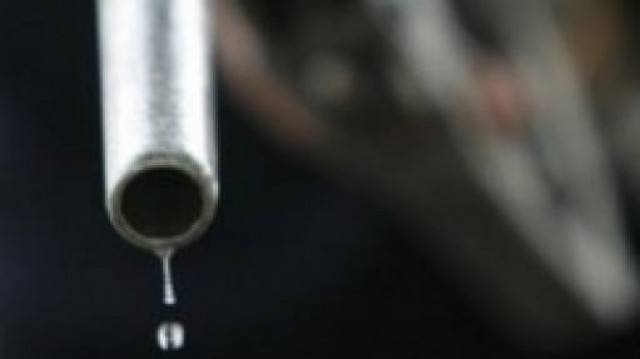Deepening crisis: OGRA issues notice for massive hike in gas prices
All Pakistan CNG Association to observe indefinite strike across Punjab from Jan 1.

The Oil and Gas Regulatory Authority (Ogra) notified a massive hike of 14% to 207% in gas tariff on all consumer categories with the imposition of gas infrastructure development cess on all categories except domestic, commercial, cement and new fertiliser plants, with effect from January 01.
The government had withdrawn the first notification to raise the rate of CNG by Rs13 per kilogramme after the All Pakistan CNG Association (APCNGA) Chairman Ghiyas Abdullah Paracha announced on Friday during a press conference to observe an indefinite strike across Punjab from January 1. After the press conference, Ogra issued another notification to raise the price of CNG by Rs8 per kilogramme. The new price of CNG has been notified as Rs74.30 per kilogramme in Khyber-Pakhtunkhwa (K-P), Balochistan and Potohar Region (Rawalpindi, Islamabad and Gujarkhan) and Rs69.62 per kilogramme in region-2, including Sindh and Punjab.
Ogra has banned CNG for public transport, causing the CNG association to go on an indefinite strike from January 1.
The increase in gas prices was necessitated owing to the cess imposed by the federal government, rise in the cost of gas, decrease in gas sales volume as well as prior year adjustments of gas companies in respect of line losses and non-operating income, the notification said.
About the adjustment in CNG consumer prices, the Ogra notification said it was necessitated owing to a hike in natural gas prices and the imposition of gas cess by the federal government.
Tariffs for CNG in region I consisting of K-P, Balochistan and Potohar region at the rate of 1070 BTU has been increased by 28.7% from Rs571.88 mmBTU to Rs736.40 mmBTU, including a cess of Rs84 mmBTU. This has raised the consumer price from Rs66.42 per kilogramme to Rs74.34 per kilogramme. Whereas in region 2, consisting of Sindh and Punjab at the rate of 950 mmBTU the tariff was increased by 22.26% from Rs571.87 to Rs699.20 mmBTU, including a cess of Rs47.40 mmBTU. Consumer price has been increased from Rs63.11 to Rs69.62 per kilogramme.
It was immediately rejected by the APCNGA which announced a province-wide strike in Punjab on Sunday in order to dissuade the government from implementing the decision.
Addressing a press conference soon after the Ogra notification, APCNGA Chairman Paracha said the government was conspiring to eliminate the CNG sector and paving the way for costly LPG and LNG imports.
The tariff for domestic consumers using up to 100 cubic metres will be increased from Rs107.87 per mmBTU to 122.95 mmBTU. This will increase the Rs448 per month bill by Rs63 to Rs511 per month. Tariff for consumers using up to 300 units will jump from Rs215.74 to Rs245.89 mmBTU. It will cause an increase of Rs313 in the monthly bill of Rs2,240 to Rs2,553 per month. Tariff for commercial consumers will be increased by 14% from Rs526.59 to Rs600.19 per month.
The industrial sector tariff will be increased by 16.97% from Rs434.17 to 507.86 mmBTU which will also include Rs13 mmBTU as cess. The power sector tariff for Wapda and Kesc will jump by 13.58% to Rs507.86 from Rs447.14 mmBTU, including a cess of Rs27 per mmBTU. Tariff for IPPs will increase by 34.57% to Rs507.86 from Rs377.39 mmBTU, including a cess of Rs70 mmBTU. Tarrif for the cement sector has been increased 14% from Rs609.09 mmBTU to Rs694.22 mmBTU but no cess has been imposed.
The tariff for feed-stock for old fertiliser plants will be jacked up by 207.10% from Rs102.01 to Rs313.27 mmBTU, including a cess of Rs197. While tariff for new fertiliser has been increased only 1.81% from Rs59.59 to Rs60.67 mmBTU and no cess has been imposed. Gas tariff for direct sales to Wapda from Kandhkot to Guddu will increase 17.58% from Rs431.94 to Rs507.86 mmBTU, including a cess of Rs27. Tariff from Sara and Mari to Guddu will increase 20.89% from Rs420.09 to Rs 507.86 mmBTU, including a cess of Rs27 mmBTU.
Published in The Express Tribune, December 31st, 2011.



















COMMENTS
Comments are moderated and generally will be posted if they are on-topic and not abusive.
For more information, please see our Comments FAQ